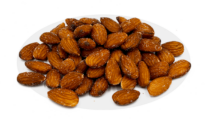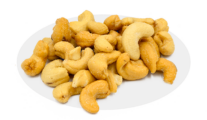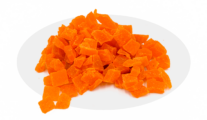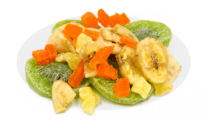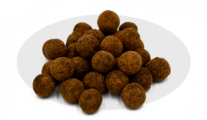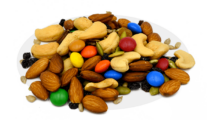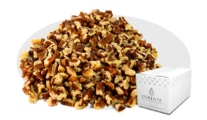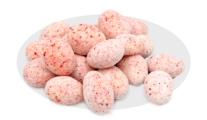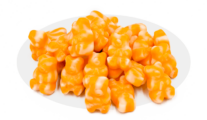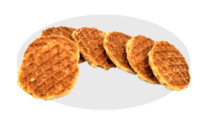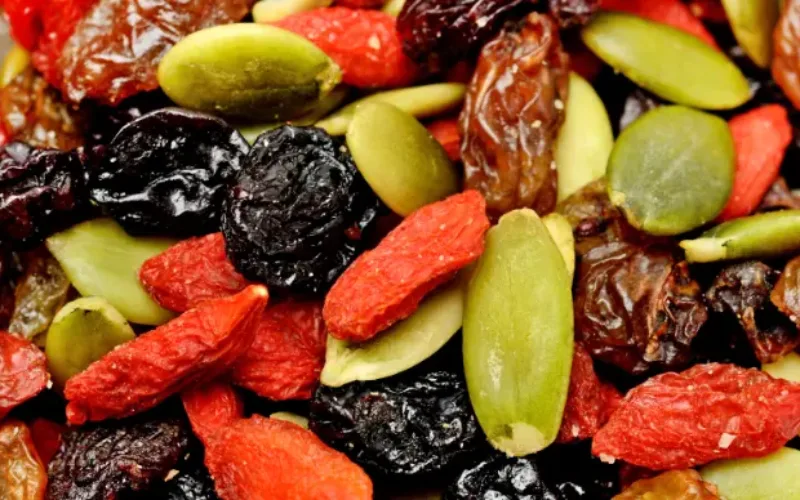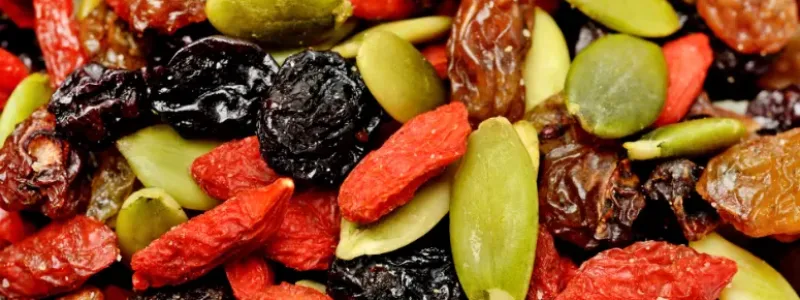Written By Sam Henselijn
Did you know that over 750,000 metric tons of cashews are eaten each year on average? Despite being one of the most expensive nuts on the market, cashews are extremely popular. These delicate nuts can be used in chicken recipes, pasta, and even to make dairy-free products like butter, cheese, and cashew milk. Although it may be easy to say that cashews are just like every other run-of-the-mill nut, cashews are fairly unique in the nut world. In fact, you might find yourself asking Are Cashews Legumes?
Maybe you’re new to the world of gourmet nuts, or perhaps you’re looking for new recipe ingredients. Or, if you’re like us, you’re wondering just how healthy your snacks can be! Regardless of what brought you here, it’s time to take a deep dive into the delicate world of cashews. In this article, join us in exploring all things cashews from what they are to how to incorporate them in your diet. By the time you finish, we bet you’ll be as nuts about cashews as we are here at L’Orenta.
What are legumes?
Chances are, you’ve eaten a ton of legumes in your life. Beans, peas, and lentils are all part of the legume family. However, the term legume refers to the entire plant those products come from. The actual bean is called a pulse.
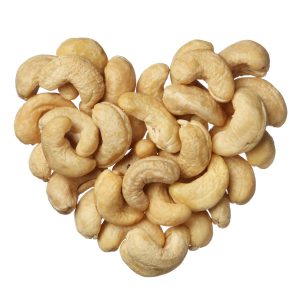
Believe it or not, legumes are not the only foods you would find rolled up in your favorite burrito. Peanuts are also a part of the legume family. The seed-filled pulses that legumes produce can be dried and stored. It comes as no surprise that drying is an integral part of enjoying peanuts as well! Legumes are extremely healthy and contain a ton of natural protein.
But our question stands: if peanuts are a legume, what about cashews?
Are cashews legumes?
Cashews aren’t legumes at all, even though they initially look that way. Cashews grow on a tree and create large green seeds that dangle. This makes them commonly mistaken as a legume, but they are actually differentiated by their shell. You see, cashews eventually grow a hard shell around them rather than creating pods.
We know what you’re thinking: “Oh, so a cashew must be a nut.” Are we right? It may come as a surprise, but a cashew technically isn’t a nut. In fact, a lot of the nuts we know and love aren’t nuts at all. Cashews, pistachios, walnuts, almonds, and pecans are all something called a “drupe” not a nut. A drupe is a type of fruit with a hard seed at the center. Think peaches and cherries. See our full article on Are Cashews a Nut?
Cashews are unique in that they have features of legumes, drupes, and nuts all at the same time. Technically, they are a drupe, but we won’t blame you if you continue to consider them a nut. After all, we still consider peanuts to create nut butter!
Are cashews good for you?
There is a lot to love about the mighty cashew! Although cashews are high in saturated fats, these fats come from stearic acid which does not have an effect on cholesterol. In fact, it may lower bad cholesterol levels. Cashews also have a variety of nutrients packed into their tiny frame. Cashews have a healthy amount of magnesium, zinc, vitaminK, and phosphorus.
With only 165 calories in a one ounce serving, cashes are an excellent addition to a healthy diet. We suggest pairing our chocolate covered cashews with a few cubes of cheese and peanut butter for a nutritious afternoon pick-me-up.
How many carbs in a cashew?
Cashews have around 7.6 grams of carbs in every 10 cashews. You’ll be happy that doesn’t typically change with additional herbs and spices. That means if you like things spicy, our wasabi soy cashews are still only roughly 8 carbohydrates per serving.
However, if you have more of a sweet tooth, you’ll need to be a little more calorie and carbohydrate aware. While our butter toffee cashews are the perfect salty-sweet pick-me-up, they also have around 25 grams of cholesterol per serving. Does that mean you can’t eat them and stay healthy? Not at all! Just remember to enjoy things in moderation. We certainly aren’t missing out on this crunch bite.
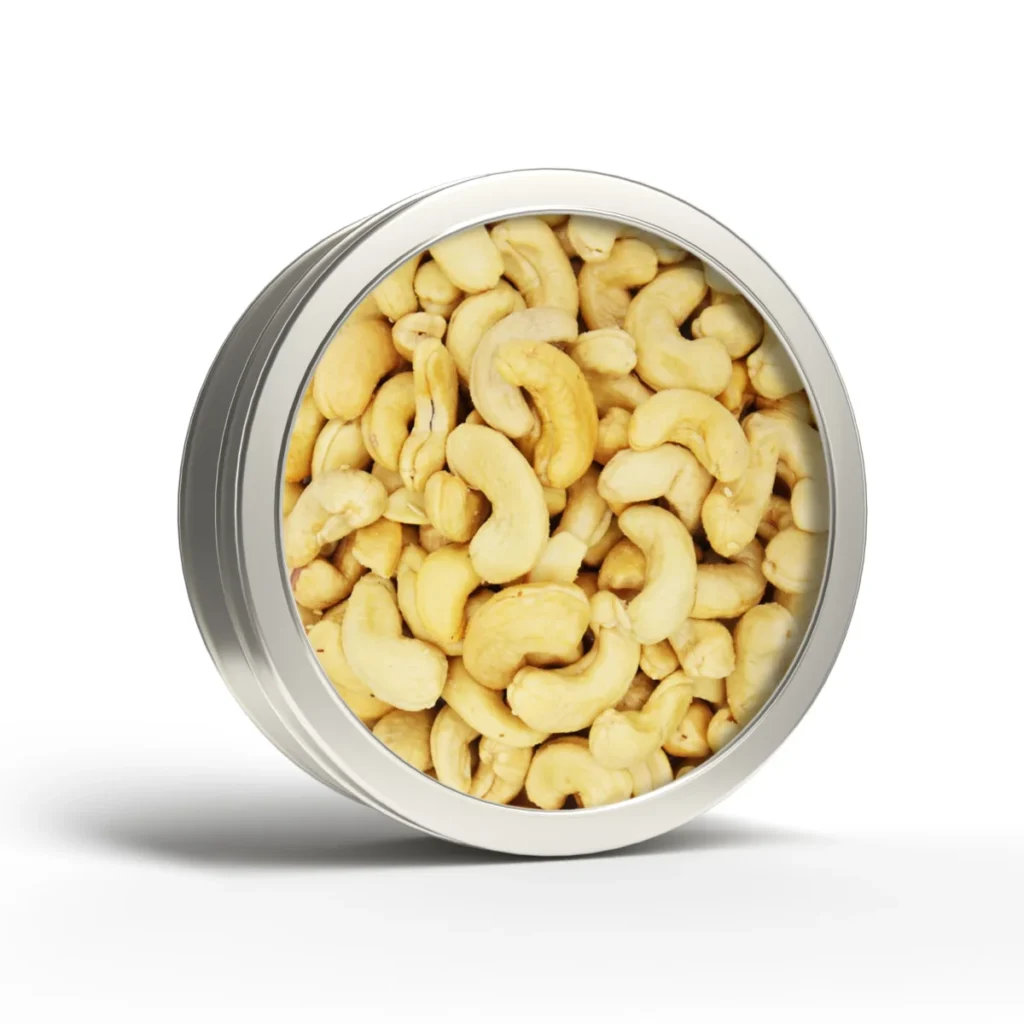
How can I add more cashews to my diet?
If you want to add cashews to your diet, the easiest way is to buy a bag! We recommend our roasted salted cashews for newcomers to cashews. They’re salty, flavorful, and can be added to any workday lunch. We do understand that not everyone likes to eat whole nuts, though. If that’s the case, cashews can be found in a variety of places. You can sample them in candies like our milk chocolate cashews or in spreads like cashew butter. Cashews also taste great in stir-fried meals, so try throwing in a handful of our soy wasabi cashews into the pan!
Cashews are extremely filling and also great for you. They certainly are a good thing to add to your diet. Now that you can answer the question Are Cashews Legumes? you can begin a fruitful journey into healthier snacking. We’re eager to know what dishes you come up with using the many gourmet nuts that you can order on our website. Happy snacking!
Are cashews a nut or a legume?
Cashews are seeds, not nuts or legumes. They are seeds that grow attached to the cashew apple, which is the fruit of the cashew tree. While they are often colloquially referred to as nuts, botanically, they are classified as seeds.
Which nuts are actually legumes?
True nuts are hard-shelled fruits that do not split open to release their seeds. Legumes, on the other hand, are plants whose fruit is a pod that splits open to reveal seeds. While many commonly referred to “nuts” are true nuts, some are actually legumes. Examples of legumes that are often considered nuts include:
Peanuts: Peanuts are legumes, and they grow underground. They belong to the legume family, Fabaceae.
Almonds: Almonds are seeds of a drupe fruit, but they are often referred to as nuts. Botanically, they are not true nuts.
Chestnuts: Chestnuts are true nuts and come from the chestnut tree.
It’s important to note that the culinary classification of nuts is often broader and can include various types of seeds and legumes.
Sam Henselijn Author’s Biography – Meet L’Orenta Nuts CEO
Copyright 2024 L’Orenta Nuts
L’Orenta Nuts proudly holds the SQF food safety certification, symbolizing our unwavering dedication to upholding the highest standards of food safety and quality. This certification guarantees that our products undergo rigorous scrutiny, ensuring transparency, traceability, and adherence to global food safety regulations for the utmost consumer confidence.
L’Orenta Nuts has the HACCP (Hazard Analysis and Critical Control Points) certification is a systematic approach to identifying, evaluating, and controlling food safety hazards. It ensures that food products are produced and handled in a manner that minimizes risks and complies with safety standards.
Our GMP (Good Manufacturing Practices) certification ensures that a manufacturing facility adheres to comprehensive quality and safety standards while producing pharmaceuticals, food, and other consumer goods, promoting consistency, quality, and compliance with regulatory requirements.
L’Orenta is an FDA-approved manufacturing facility and has met the rigorous standards set by the U.S. Food and Drug Administration. It demonstrates compliance with regulations, ensuring the production of safe and high-quality food products.


